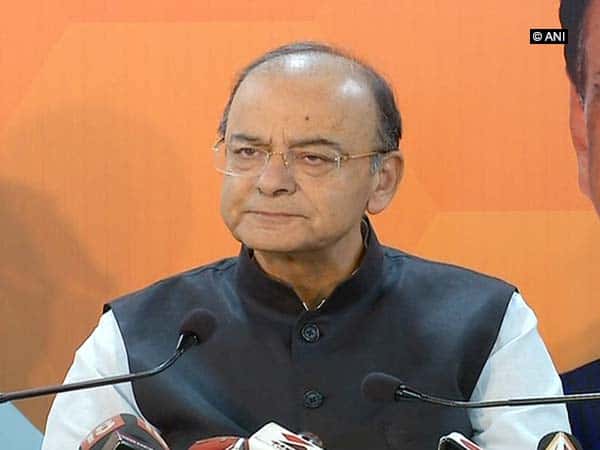New Delhi: The Central government favours bringing petroleum products under the ambit of Goods and Services Tax (GST) but only after building a consensus with states, Union Finance Minister Arun Jaitley said on Tuesday.
“As far as the Central government is concerned, we are in favour of bringing petroleum products under the GST, let me categorically put it. But we will wait for the consensus of the states. And I do hope that at some stage sooner than later the states would agree to it,” Jaitley told the Rajya Sabha in reply to a question.
He said that petroleum products have not been kept out and were a part of the GST legislation but the decision to levy GST on these products can be taken only after the GST Council clears it with 75 per cent or three-fourth majority.
He added that no further amendment to any law would be required for the same as the 115th Constitutional amendment already provides for it.
Replying to a supplementary by Congress leader and former Finance Minister P. Chidambaram, Jaitley pointed out that the draft proposal for the GST-related Constitutional amendment presented by the United Progressive Alliance (UPA) government had not included petroleum products to be part of the GST “because the UPA knew it would be a deal breaker with the states”.
“After a great deal of discussion, we persuaded the states to bring petroleum products under GST. Initially, the states were not agreeing but later they reluctantly agreed to it. In meeting after meeting of the Empowered Committee, we persuaded them.
“And finally the deal with the states was that the GST Council will move ahead for bringing petroleum products under GST only after the states would agree to it,” Jaitley said.
The Minister pointed out that a large share of duties on petroleum products were levied by the states.
He said that in the face of rising crude prices, the Centre decided to reduce its duties and asked the states to follow suit. “The NDA-ruled states readily agreed to it but the UPA-ruled states refused to do so.”
The states were unwilling to allow petroleum products under GST as after the GST came into play, the states have only petroleum and liquor as their independent sources of taxes. Taxes on rest of the products and services would go to the Central government that would dole out the states’ share.
IANS

